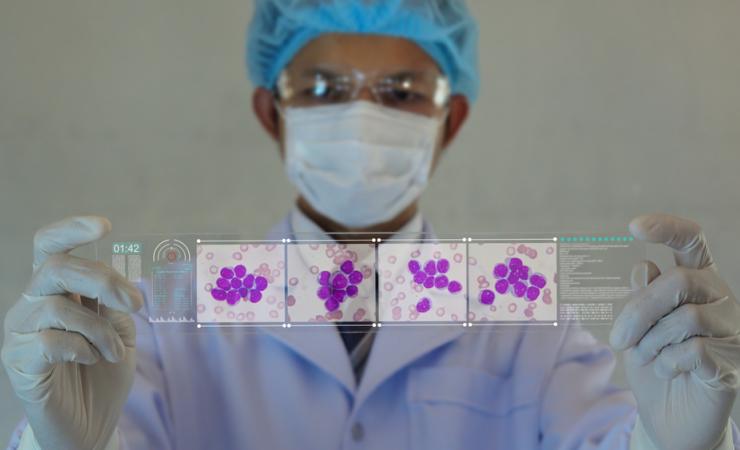The IMI cancer research portfolio started off small, but it grew significantly in 2021 to bolster the European Commission’s Beating Cancer Plan efforts. We are now funding a number of new cancer research areas that are vital for meeting #EUCancerPlan policy goals, including projects that are accelerating CAR-T therapy, improving quality of life in cancer clinical trials, using artificial intelligence to improve solid tumour treatment, examining why tumours grow resistant, and comparing therapies in oesophageal cancer. Meanwhile, a number of earlier IMI cancer projects are constantly generating new findings and successes that are helping the scientific community to tackle persistent cancer challenges.
Here are some recent examples:
Two compounds progress to phase 1 trials - The European Lead Factory or ELF (currently funded through the IMI-funded ESCulab project), helped identify two drug candidates for cancer treatment that have now progressed to phase 1 human clinical trials.
'Google Maps' for tumours can pinpoint which tumour part should be studied at unprecedented speed - IMMUCAN researchers produced a web-based tool that allows huge volumes of data, taken from imaging of tumours, to be speedily analysed to help decide the most representative part of the tumour to further study and understand its unique microenvironment.
Machine learning tool to help identify candidates for stem cell transplant therapy - HARMONY’s prototype tool may offer a more precise way for doctors to predict which patients are most likely to benefit from invasive and risky stem cell transplant therapy.
Blood cancer: 63k patient datasets readied to reveal ‘untapped’ potential of AI in cancer research - HARMONY is using advanced data analysis methods based on artificial intelligence and machine learning to mine 100k patient datasets for insights into haematological malignancies (blood cancers) and treatment outcomes.
Getting ever closer to blood-based biopsies for detecting and monitoring tumours - To overcome some existing hurdles and deploy liquid biopsy-based assays widely, the European Liquid Biopsy Society was set up as an offshoot of the IMI-funded CANCER-ID project. Its members meet regularly to discuss different issues related to the use of LB, ranging from technology benchmarking to the development of regulatory roadmaps for biomarkers and assays.
New method matches drugs with faulty DNA replication, helping identify childhood cancer drug candidates - A methodolgoy created by the ITCC-P4 project can help identify some of the best targets in childhood tumours that could be candidates for treatment with adult therapies
The projects mentioned in this article are supported by the Innovative Medicines Initiative, a partnership between the European Union and the European pharmaceutical industry.
